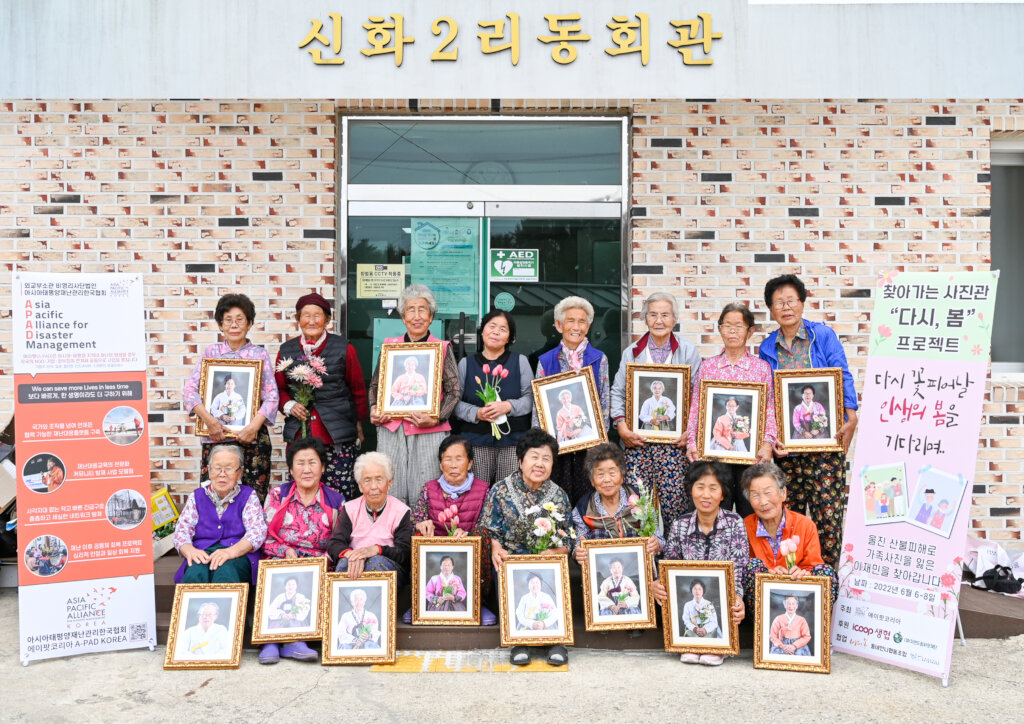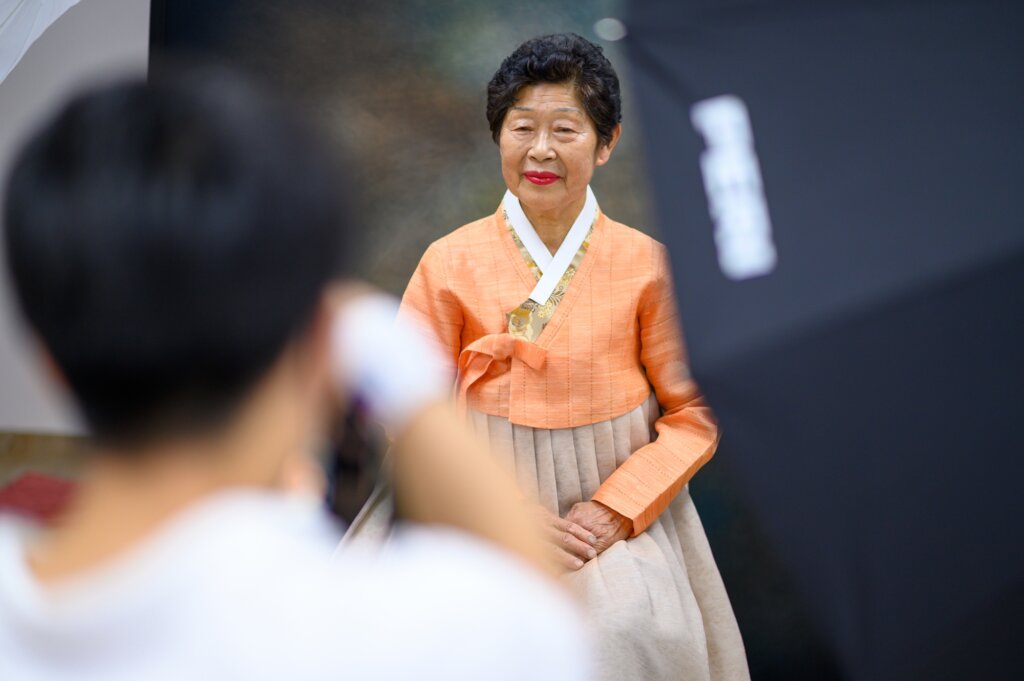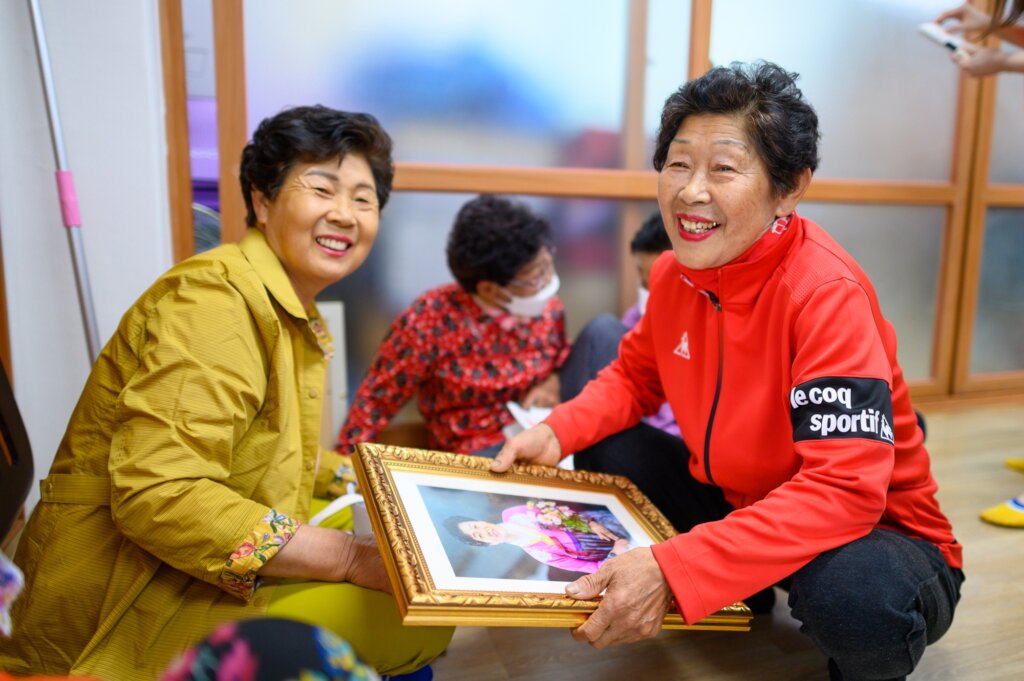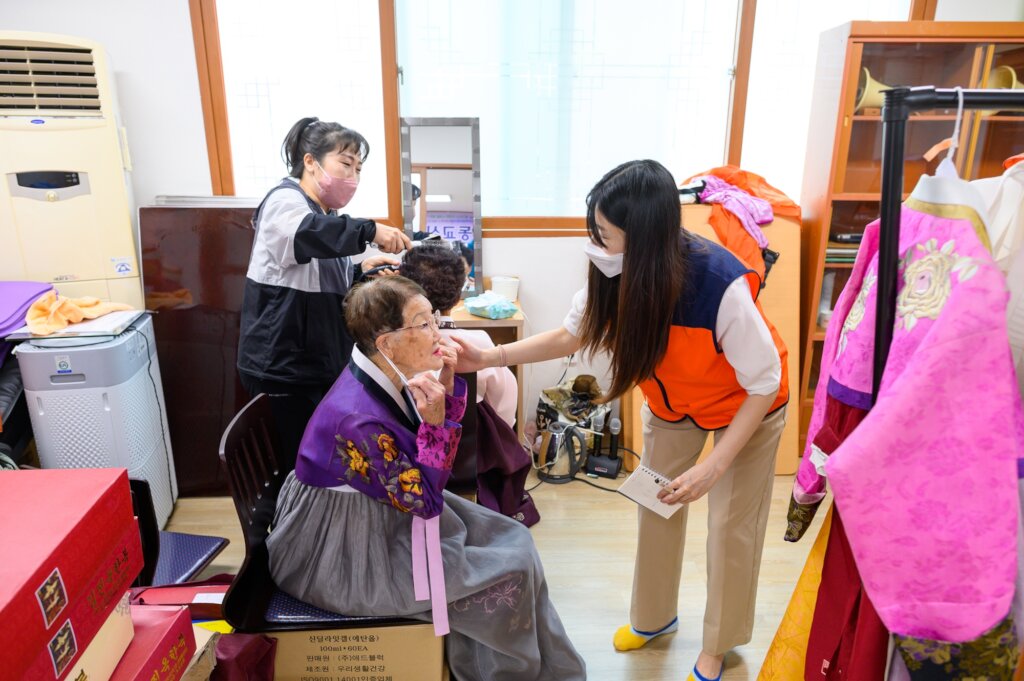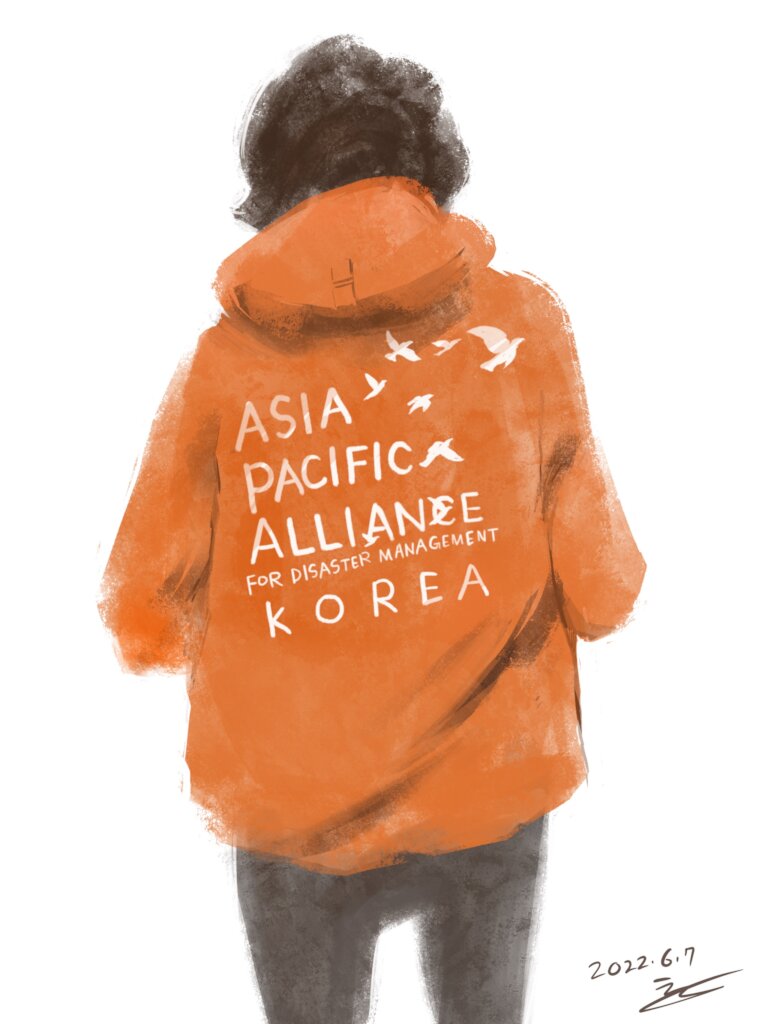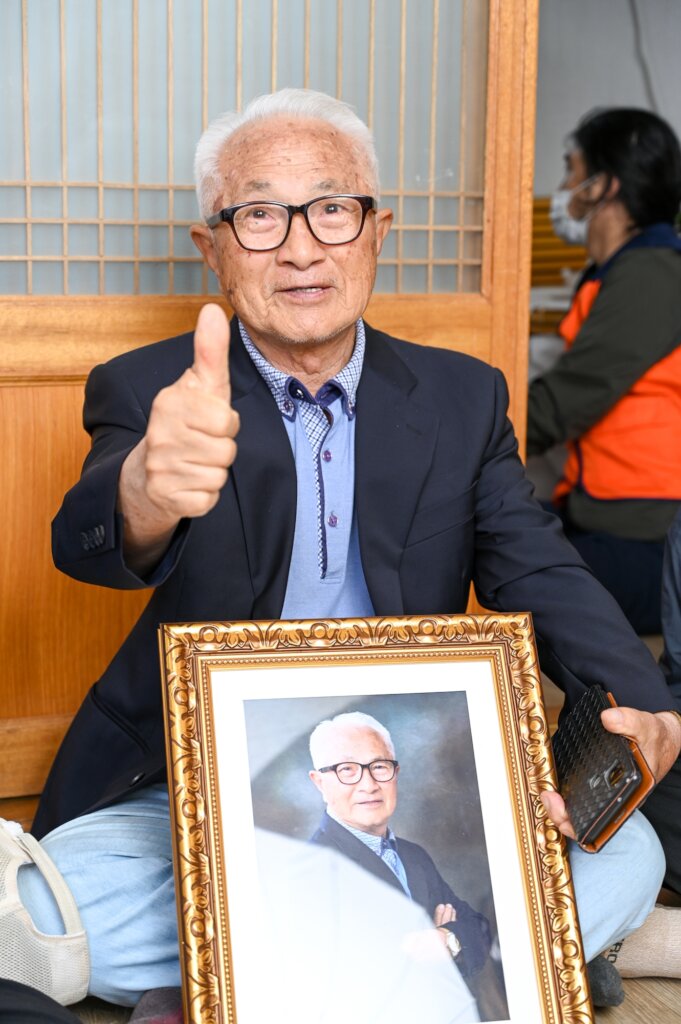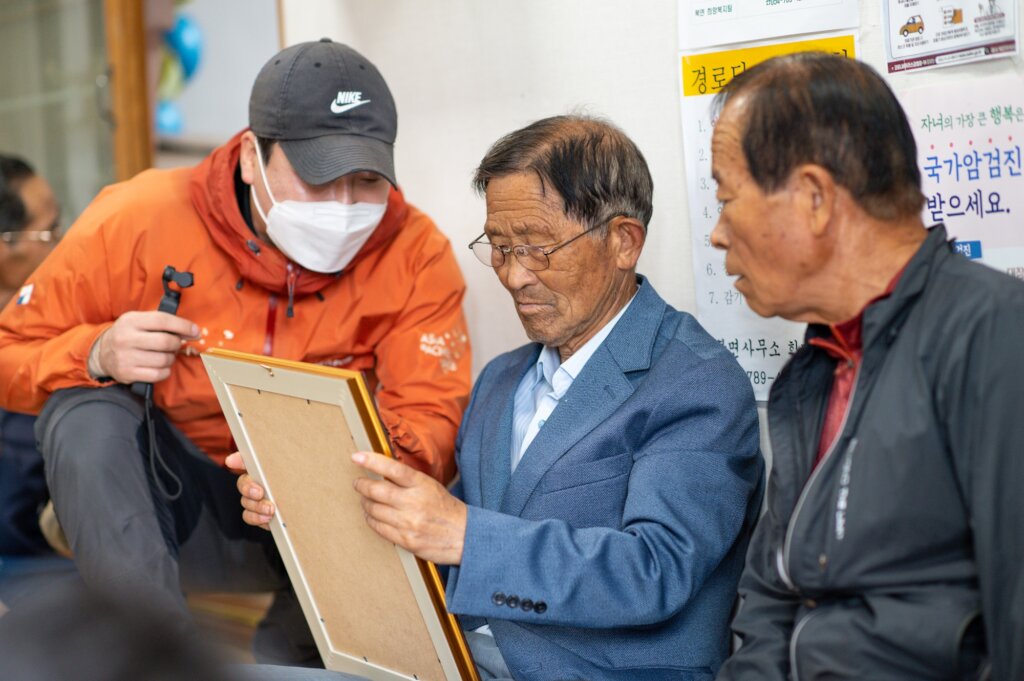By Jong won | Ul-jin long term recovery project
As compensation for damage begins in earnest, it is graded according to the degree of damage, and compensation and sponsorship items vary depending on the grade, causing the village community to shake. Apad-Korea, which has seen this at many disaster sites, is pushing for a "long-term daily recovery program" to help victims escape trauma and live happily with their neighbors for a long time.
In addition to Apad-Korea, many people, including the professional photographer group Barabom Photography Center, the neighborhood sister cooperative, and illustrator Jalu, helped in this "Visiting Photography Project." From June 6th to 8th, we went around the disaster area for three days and set up a filming studio in the village hall. Regardless of the extent of the damage, about 100 elderly victims were presented with memories for three days.
"The forest fire is out, and after all this time, what can we do?"’
It is a question often encountered by Apad-Korea who visit the site while conducting a long-term daily recovery program. However, Apad- orea said it still has a lot of work to do, and will continue to create psychological support and recovery projects with local young people in the village to restore the community and the daily lives of the elderly.
Sustainable disaster support is needed. We ask for your continued interest and support. Thank you:)
Project reports on GlobalGiving are posted directly to globalgiving.org by Project Leaders as they are completed, generally every 3-4 months. To protect the integrity of these documents, GlobalGiving does not alter them; therefore you may find some language or formatting issues.
If you donate to this project or have donated to this project, you can receive an email when this project posts a report. You can also subscribe for reports without donating.
